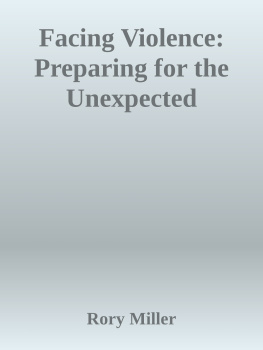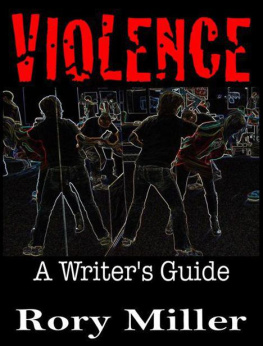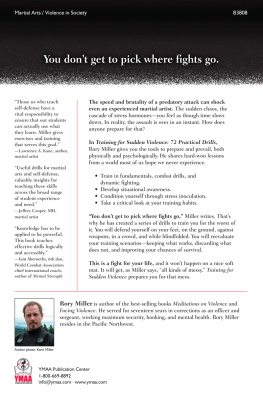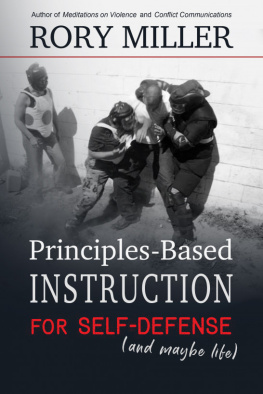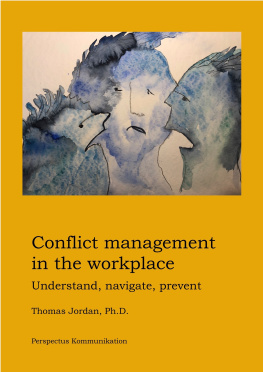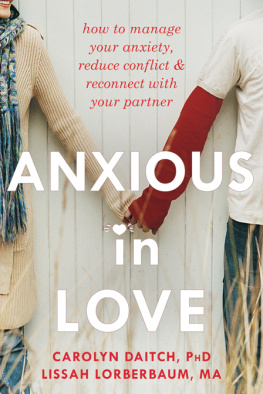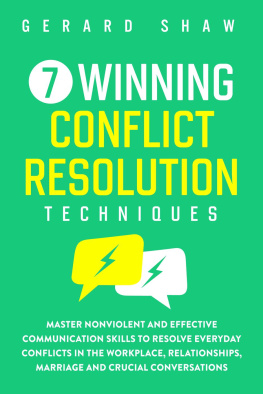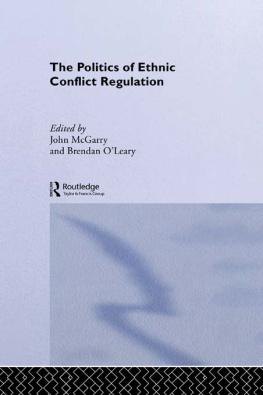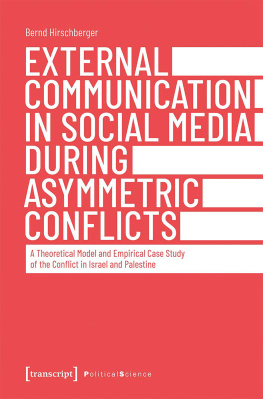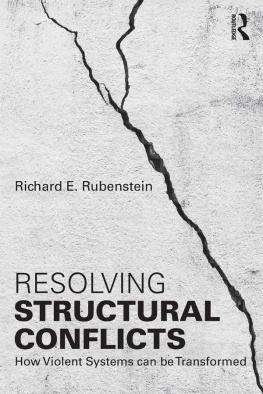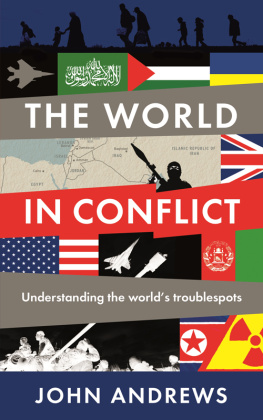ConCom
Conflict Communication
A New Paradigm in Conscious Communication
By
Rory Miller
Published by Rory Miller at Amazon
Copyright 2014 Rory Miller
http://chirontraining.com
Kindle Edition, License Notes
This ebook is licensed for your personal enjoyment only. This ebook may not be re-sold or given away to other people. If you would like to share this book with another person, please purchase an additional copy for each recipient. If youre reading this book and did not purchase it, or it was not purchased for your use only, then please return to amazon.com and purchase your own copy. Thank you for respecting the hard work of this author.
Cover design by Kamila Zeman Miller
http://wyrdgoat.com/Cover_Art.html
Disclaimer
Information in this book is distributed As Is, without warranty. Nothing in this document constitutes a legal opinion nor should any of its contents be treated as such. Neither the authors nor the publisher shall have any liability with respect to information contained herein. Further, neither the author, course designers, nor the publisher have any control over or assume any responsibility for websites or external resources referenced in this book.
Like the Post-it note, Conflict Communications is something you never knew you needed but cannot live without. The materials are straightforward and easy to apply, yet profoundly insightful. Once you begin to recognize the patterns that Miller describes within yourself and others it will forever change the way you interact. Armed with this new information I was able to resolve a longstanding deadlock on a $168M contract in less than two hours. Its amazingly powerful and wholeheartedly recommended. -- Lawrence Kane , Sr. Leader, ITI Strategy, Sourcing, and Asset Management at a Fortune 50 company.
TABLE OF CONTENTS
1.1
1.2
1.3
1.4
2.1
2.2
2.3
2.4
2.5
2.5.1
2.5.2
2.5.3
2.5.4
2.6
2.6.1
2.6.2
2.6.3
2.7
2.8
2.8.1
2.9
2.10
2.10.1
2.10.2
3.1
3.2
3.3
3.4
3.5
3.6
3.7
3.8
3.10
A.1
A.2
A.2.1
A.2.2
A.2.3
A.2.4
A.2.4.1
By Maj. Greg Postal, MD, Psychiatrist at Walter Reed Medical Center
The first principle [of scientific inquiry] is that you must not fool yourself --and you are the easiest person to fool.
-- Richard P. Feynman, Nobel Prize winning physicist
Rory Miller has devoted many years to developing and refining strategies of conflict management. Those who know him can attest to the fact that while Rory has a heart of gold, when it comes to threat assessment and management he does not gladly suffer fools and seems incapable of allowing fatally flawed methods and theories to go unchallenged. In this we agree: as both a martial arts instructor and an Army psychiatrist I am acutely aware of the crucial roles that accurate prediction and effective strategies play when dealing with potentially violent individuals. Errors in either of these practices can have grave consequences, and Rory's work has certainly improved my practice and teaching of both.
In recent years, psychiatry has made considerable strides in some areas related to violence prediction, especially on an epidemiologic (macro) level. Law enforcement is clearly aided by improved accuracy in statistical predictions of the likelihood that an individual will recidivate after release from prison, or of how much danger is posed by someone who has made threats to a public figure. Despite this, psychiatry is abysmal as a field in terms of our ability to reliably predict or preempt incipient violence by patients. This deficiency becomes all too clear when one peruses data on assaults of clinicians or hears one too many times the assertion that if you work in the field long enough you will inevitably be victimized. Why is it that as a field of experts on human behavior we perpetually fail to become more competent in this crucial area?
One possible explanation is that the absence of good empirical data addressing violence on a micro level conflicts with our desire to utilize only scientifically proven methods in our work. While it is true that violence management is difficult to evaluate in a scientifically rigorous fashion (anyone want to volunteer to be in a placebo control group?), an insistence on relying only on data-driven methods can lead to lack of practice and trust in the skill sets we do have available to us. As a result, much like victims elsewhere, clinicians are often heard to say, I should have trusted my gut after they have been harmed. Also problematic is the lack of quality instruction on the nature of interpersonal violence, which sometimes results in a therapist continuing to try to talk down a patient beyond a point where there exists any reasonable chance of success. Exacerbating this trend have been various pseudo-scientific programs of verbal de-escalation which imply that resorting to physical intervention is by definition an indication of failure to comprehend or correctly implement that programs techniques.
A more likely reason for inadequately addressing the issue is the visceral aversion most people have to imagining a violent attack directed at them. The emotion of fear has played a crucial evolutionary role but has also created a compulsive tendency to avoid situations that make us feel scared or vulnerable. Ideally, when we recognize signs of danger, we respond in ways which increase our safety, avoiding the threat or proactively taking steps to minimize the potential for harm. When perceived threats in our environment cannot be eliminated, other methods must be relied upon to manage this intolerable anxiety. Historically, magical rituals or talismans had been utilized to ward off such fears; for most of us today this process has largely been internalized, functioning on a psychological rather than societal level.
Despite the fact that one could reasonably expect behavioral scientists to be in the forefront of the effort to develop better capacities for observing, understanding, and preventing violence, we too often also cling to a talisman of sorts: the fiction that we are already competent at dealing with violence. We know intuitively that were we to undertake a critical evaluation of how well our training has prepared us to address threats of violence, we would reveal dramatic deficiencies, bringing back full-force that same sense of powerlessness and vulnerability. Is it any wonder, then, that so many of us avoid grappling with this issue?
In addition to the psychic distress resulting from becoming seriously disillusioned with a discipline to which one has devoted years, another disincentive is what Rory might term a Monkey fear: Openly questioning whether your training has appropriately prepared you to manage violence will likely result in indifference from peers (at best) and condemnation from an organizational hierarchy which perceives a threat to the status quo. From the perspective of your supervisors, raising these issues not only impugns their expertise, it threatens to undermine their own sense of security on this issue. They may initially endeavor to explain to you how your anxiety about the threat of violence results from a lack of understanding, experience, self-confidence, etc., but should you persist in this questioning, you may quickly find you are becoming a pariah.
So how does all of this relate to this book (and to Rory's work in general)? While certainly based in science, what he presents here isn't provable in a strictly empirical sense. Furthermore, it would make a poor substitute talisman of invulnerability since that kind of absolute certainty in the face of a real threat is to a large degree what the ideas Rory presents here are designed to combat.
Next page

